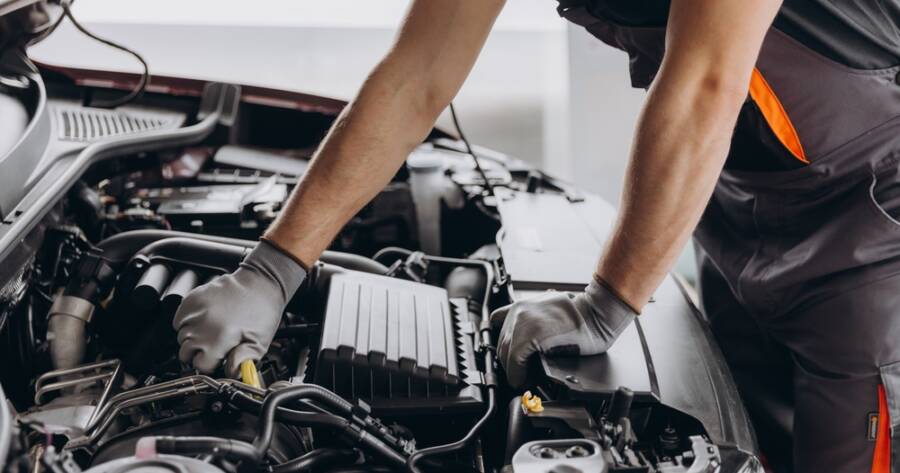As winter conditions fade, many vehicles carry the hidden effects of cold temperatures, road salt, and reduced driving efficiency. Mechanics often point to spring as an ideal moment to inspect key systems, refresh vital fluids, and address wear that might go unnoticed during colder months. A well-timed tune-up can help restore performance, improve fuel economy, and prevent minor issues from becoming costly repairs. For drivers preparing for warmer weather, seasonal maintenance can offer meaningful peace of mind.
Why Spring Maintenance Matters
Winter conditions can be tough on a car’s engine, tires, and fluids. Freezing temperatures cause parts to contract, while road salt can lead to rust. As the weather warms up, it’s a good time to check for hidden damage and make sure your vehicle is ready for spring and summer driving.
A tune-up in the spring also helps improve fuel efficiency. When a car runs smoothly, it burns less fuel and operates more effectively. Mechanics suggest looking at key areas like the battery, tires, and oil to ensure optimal performance.
Checking the Battery and Electrical System
One of the most common car problems after winter is a weak or dead battery. Cold weather puts extra strain on the battery, making it harder to start the engine. Mechanics recommend testing the battery’s voltage in the spring to avoid sudden failures.
Corrosion on battery terminals can also cause electrical issues. Cleaning the terminals and making sure the battery is properly secured helps extend its life. If the battery struggles to hold a charge, it may be time for a replacement. Mechanics also check alternators and wiring to ensure the entire electrical system is functioning properly.
Inspecting Tires and Brakes
Tires lose pressure in cold weather, which can lead to uneven wear. In spring, checking tire pressure and tread depth is essential for safety and performance. Properly inflated tires improve fuel efficiency and provide better traction on wet roads.
For those who used winter tires, spring is the time to switch back to all-season or summer tires. Winter tires wear down quickly in warm temperatures, reducing their lifespan. Mechanics also recommend checking brakes for signs of wear, as stopping power is crucial in spring rain and changing road conditions.
Changing Fluids and Filters
Fluids play a major role in keeping a car running smoothly. Mechanics often suggest an oil change in spring, especially if it hasn’t been done in a while. Fresh oil ensures proper lubrication and protects the engine from damage.
Other fluids, such as coolant, brake fluid, and windshield washer fluid, should also be checked and topped off if needed. Dirty air filters can reduce fuel efficiency and performance, so replacing them is another recommended step. A clean filter helps the engine breathe better, improving overall operation.
Examining Belts, Hoses, and Suspension
Belts and hoses can develop cracks in cold weather, leading to leaks or failures. A mechanic can inspect these parts for signs of wear and replace them if necessary. Ignoring worn belts and hoses can result in engine problems or overheating.
Suspension components, such as shocks and struts, may also need attention. Potholes and rough winter roads can cause damage, leading to poor handling. Mechanics check these parts to ensure a smooth and comfortable ride as the seasons change.
Preparing the Air Conditioning System for Warmer Weather
As temperatures rise, the demand on your vehicle’s air conditioning system increases. Mechanics often recommend testing the A/C in early spring to ensure it cools properly before the first heatwave hits. Low refrigerant levels, clogged cabin air filters, or worn compressor components can reduce cooling efficiency and put strain on the system.
Addressing these issues early can prevent costly repairs later and keep the interior comfortable during long summer drives. A properly functioning A/C system also improves air quality by filtering pollen and dust—an added benefit during allergy season.
Addressing Alignment and Steering Issues After Winter Roads
Winter driving often involves navigating potholes, uneven pavement, and icy ruts, all of which can throw a vehicle’s alignment out of balance. When spring arrives, mechanics recommend checking for signs like uneven tire wear, drifting while steering, or vibrations at higher speeds.
A proper alignment not only improves handling and safety but also helps extend the life of your tires. Spring is also a good time to inspect power steering fluid levels and look for leaks or worn components. Ensuring your steering and alignment are in top shape helps maintain stability and control as you transition into the new season.
Keeping Your Car in Top Shape
A spring tune-up isn’t just about fixing problems—it’s about preventing them. Regular maintenance helps extend the life of a vehicle and reduces the chances of costly repairs down the road. Mechanics recommend taking the time to inspect key components and address minor issues before they become major concerns.
With warmer weather ahead, making sure your car is in good condition ensures a worry-free driving experience. A few simple checks and routine maintenance can keep your vehicle running efficiently all season long.




